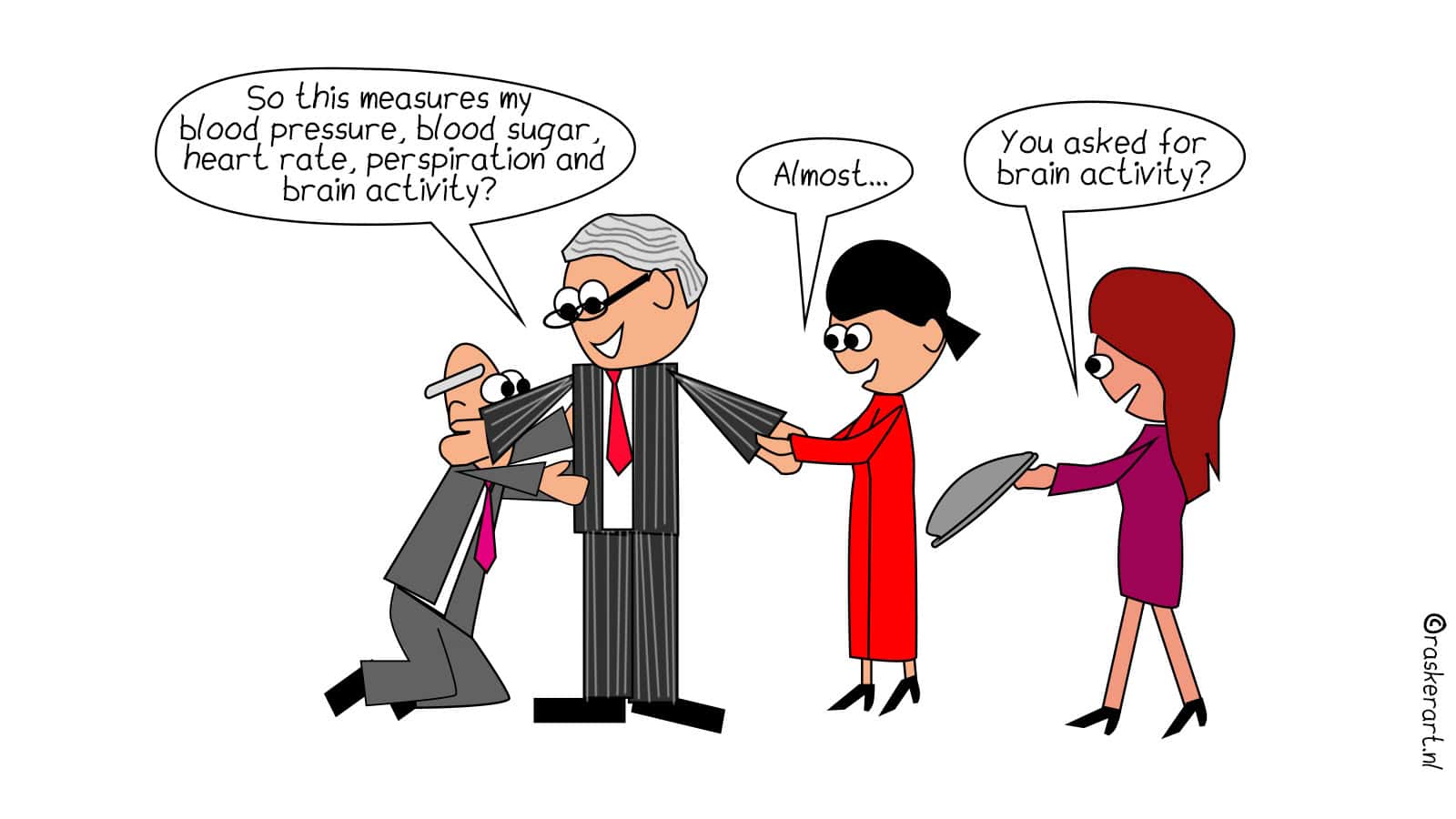
I wish I had come up with this title myself, but unfortunately, this is not the case. ‘Would you want your daughter to marry a marketing man?‘ is the title of an academic article that Professor Richard Farmer wrote for the Journal of Marketing back in 1967. If you ask me, it is the most brilliant title of an academic article ever. In his article, Farmer does hold himself back in any way. For example, he states: “For the past 6.000 years the field of marketing has been thought of as made up of fast-buck artists, con-men, wheeler-dealers and shoddy-goods distributors. Too many of us have been “taken” by the tout or con-man; and all of us at times have been prodded into buying all sorts of “things” we really did not need, and which we found later on we did not even want”.
Farmer had a very clear answer to the question that he raised: “Do you want your son to study in a modern American school of business? Lord, no! (I teach in one of the best, too, but even it is not good enough.) And if he majored in marketing, I would cut him off without a cent. If that nice young man who has dates with your daughter turns out to be a marketing major, what would you do? I would chase him of the premises fast. Who wants his daughter to marry a huckster? Nobody knows the troubles we are going to see if we do not face up to certain essential and basic issues, and soon.”
So, just to be clear about that.
Trapped animals in a pen
In the past few weeks, I took part in two online conferences and was firmly reminded of Farmer’s article. Perhaps Farmer’s work is more relevant than ever? The first conference was the Dutch E-commerce Week, packed with presentations on conversion optimization, email marketing, and revenue growth. Some of the presentations made my blood run so cold that I felt shivers running down my spine. I didn’t have the impression that the conversion experts understood that they were talking about people when they referred to customers.
In my opinion, a conversion expert in E-commerce views people as a bit like trapped animals in a pen where the animals are driven in a certain direction using electric cattle prods. It made me feel disgusted. The advantage of an online conference is that you can simply slam your laptop shut if you decide that you can’t take it anymore.
The second conference I attended was the Philosophy of Human-Technology Relations Conference. This was a conference full of designers, IT specialists, mathematicians, architects, technicians, and philosophers. All scientists who study the relationship between humans and technology, or between humans and data. Artificial intelligence and robotics were the most important topics here, yet people stood non-stop on the number one spot.
In search of ethics
Whereas I didn’t hear the word ethics mentioned once during the Dutch E-commerce Week, ethics was inadvertently the central theme during the Philosophy of Human-Technology Relations Conference. At that last conference, the term ethics came up at least once an hour. It strikes me that when we talk about artificial intelligence and robotics, we are as quick as we can be to highlight the ethical perspectives. But when we talk about people, ethics seems suddenly out of place. This can and must be done differently.
Not only do we have to teach our students to answer questions, but we also have to teach them to ask themselves and others the right kinds of questions.
It is no secret that I am a huge supporter of more ethics lessons in education. Not only do we have to teach our students to answer questions, but we also have to teach them to ask themselves and others the right kinds of questions. Whether you are studying marketing, robotics, or nursing, every study should have a specified amount of credits set aside for ethics. If my daughter or son ever decides to become a conversion optimist, I hope that along with the ethical baggage that comes with the program, they will learn to ask themselves and others the right questions. And I hope that they never forget that customers are actually people as well.
About this column
In a weekly column, written alternately by Wendy van Ierschot, Eveline van Zeeland, Eugene Franken, Jan Wouters, Katleen Gabriels, Mary Fiers, and Hans Helsloot, Innovation Origins tries to find out what the future will look like. These columnists, occasionally supplemented with guest bloggers, are all working in their own way on solutions for the problems of our time. So tomorrow will be good. Here are all the previous articles.








